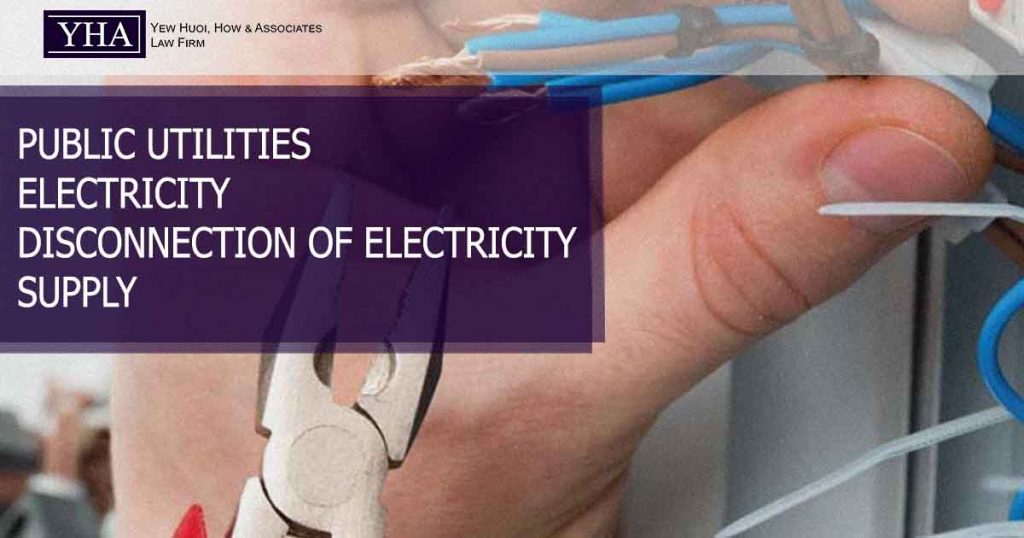In brief
- Tenaga Nasional Berhad (“TNB”) is Peninsular Malaysia’s sole power provider. TNB is required by law to provide power to everybody who has requested and applied for it. Electricity Supply Act 1990 (“ESA 1990”) and the Licensee Supply Regulations 1990 (“LSR 1990”), control TNB’s interaction with its customers. While TNB is required by law to provide power upon request, there are several circumstances in which TNB may legitimately decline to do so. Non-payment of bills, non-payment of deposit, and dishonest usage of electricity are the three major reasons on which TNB has the authority to disconnect electrical service.
Non-payment of bills
- Consumers have a contractual duty to pay their monthly bills within 30 days of the bill’s issue, otherwise TNB may terminate electrical service to your property. TNB can also exercise its power to interrupt electrical supplies under the ESA 1990 and LSR 1990, in particular, Regulation 4 of the LSR 1990. In any case, TNB is obligated to follow specific procedures before disconnecting the electrical supply (“Pre-conditions”). TNB must first issue a written demand allowing the customer in default 7 working days to settle the due balance and then serve a notice of intention to disconnect 3 working days prior to the disconnection if Regulation 3 of the LSR 1990 applies.
Non-payment of deposit or insufficient deposit balance
- TNB requires customers to submit and keep a deposit when they first registered for electricity service. Clause 4 of the Supply Contract and Regulation 5 of the LSR 1990 both provide for this. TNB may cut the energy supply to the premises if the electricity bill is not paid on time and the deposit balance is inadequate after subtracting the overdue amount.
Dishonesty of electricity usage
- Over the years, there has been a significant increase in cases involving deceptive power use, sometimes known as meter tampering. Any person who dishonestly abstracts, consumes, or uses electricity, or adjusts the index of the meter or other instruments, or prevents the meter or instrument from duly recording the consumption of electricity, commits an offence under the ESA 1990.
Q. When the meter was replaced by the TNB, did the right to disconnect end?
A. TNB may choose to replace the tampered meter rather than exercising its rights under Section 38(1) of the ESA 1990 immediately if evidence of meter tampering is discovered. The consumer contended that TNB was not justified in disconnecting electricity service under Section 38(1) of the ESA 1990 since TNB had replaced the allegedly tampered with meter in Karun Klasik Sdn Bhd v Tenaga Nasional Bhd [2018] 3 MLJ 749. In Tenaga Nasional Bhd v Chew Thai Kay & Anor [2022] 2 MLJ 25, on the other hand, the court found that after the impugned meter was corrected, there was no longer any problem of meter tampering, and so the crime under s.37(1) was no longer present. To invoke the power of disconnection, there has to be a continuous offence.

